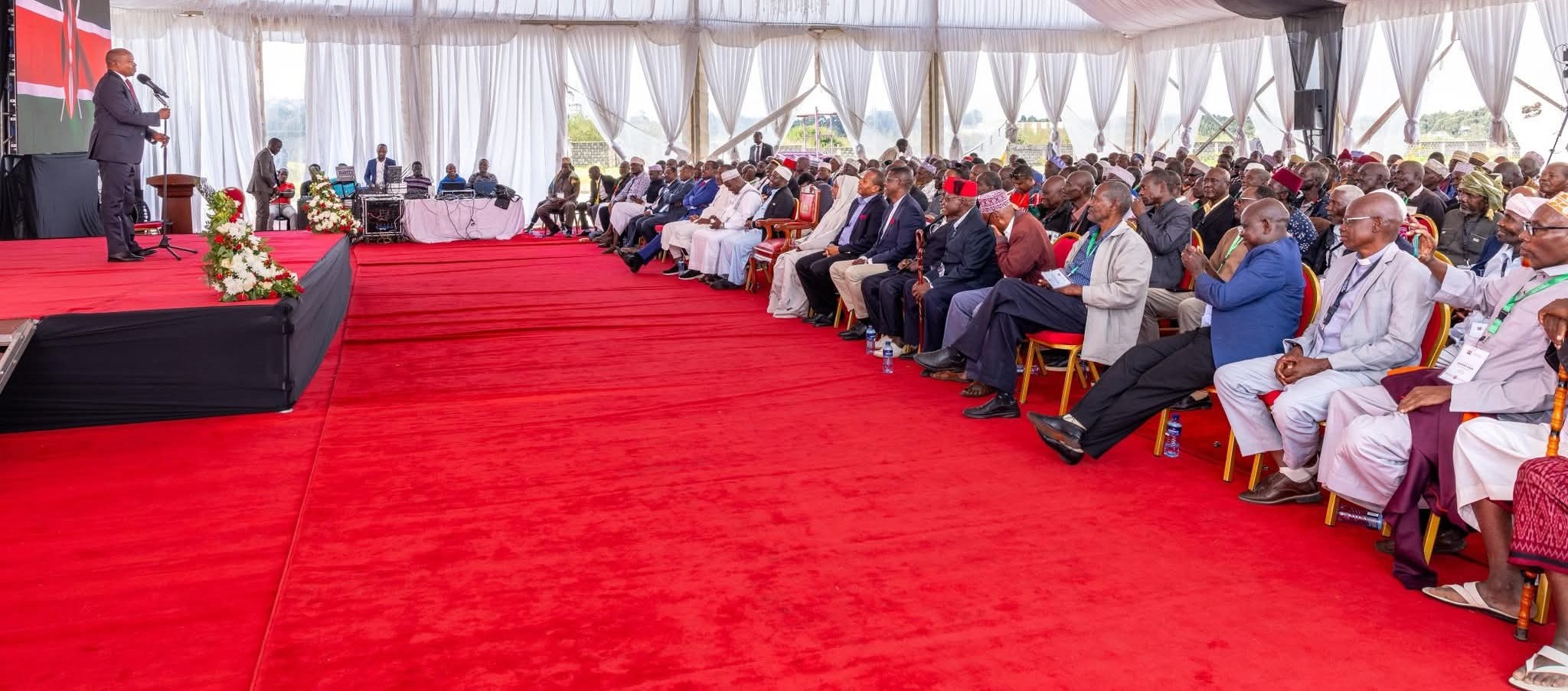𝐃𝐏 𝐊𝐢𝐧𝐝𝐢𝐤𝐢 𝐌𝐞𝐞𝐭𝐬 𝐓𝐚𝐧𝐚 𝐑𝐢𝐯𝐞𝐫 𝐋𝐞𝐚𝐝𝐞𝐫𝐬 𝐢𝐧 𝐊𝐚𝐫𝐞𝐧 𝐭𝐨 𝐑𝐞𝐯𝐢𝐞𝐰 𝐊𝐞𝐲 𝐃𝐞𝐯𝐞𝐥𝐨𝐩𝐦𝐞𝐧𝐭 𝐏𝐫𝐨𝐣𝐞𝐜𝐭𝐬
Deputy President H.E. Prof. Kithure Kindiki hosted a high-level consultative meeting with leaders from Tana River County at his official residence in Karen. The meeting brought together elected representatives, community elders, and senior government officials to review ongoing and planned national government development interventions in the region.
The engagement, convened under the framework of the Bottom-Up Economic Transformation Agenda (BETA), focused on accelerating key projects aimed at transforming livelihoods and promoting inclusive growth across Tana River County. Central to the discussions were initiatives in agriculture, infrastructure, energy, and economic empowerment, which form the backbone of the government’s development priorities.
Among the major projects under review was the rehabilitation and modernization of the Bura Irrigation Scheme, where the government has already injected KSh 1.5 billion to revitalize food production. The Deputy President emphasized that revitalizing such strategic agricultural zones is essential for enhancing food security, creating employment, and expanding Kenya’s agro-industrial value chains.
“Tana River holds immense potential for food production and energy development,” said Deputy President Kindiki. “The government is determined to work hand in hand with local leadership to unlock this potential, create jobs, and uplift livelihoods. This is a collective effort one that requires synergy between national and county structures for effective and sustainable impact.”
The Deputy President reaffirmed the government’s unwavering commitment to strengthening coordination mechanisms between ministries, departments, and agencies to ensure seamless implementation of projects. He underscored that the government’s approach to development is people-centered, data-driven, and results-oriented, with a deliberate focus on reducing regional disparities.
The Tana River delegation comprising political, community, and opinion leaders welcomed the government’s continued support and pledged to collaborate closely with the Office of the Deputy President and the relevant state departments to ensure that ongoing projects deliver tangible benefits to residents.
County leaders highlighted key priorities including: Expansion of the Hola and Bura irrigation schemes to support year-round agricultural production, improvement of road connectivity to ease access to markets and stimulate trade, increased access to electricity and water for households and small businesses and greater inclusion of youth and women in income-generating activities and community enterprises.
The meeting also explored ways of enhancing intergovernmental coordination in the implementation of flagship programmes under BETA, with a particular focus on agriculture, manufacturing, affordable housing, healthcare, and the digital economy. Representing the State Department for Cabinet Affairs, Principal Secretary Dr. Idris Salim Dokota, PhD, CBS, reiterated the Department’s role in ensuring policy coherence, inter-agency coordination, and accountability across government programmes. He noted that the success of national initiatives depends on structured engagement between national and county governments, guided by the principles of collaboration, transparency, and shared prosperity.
“The Office of the Deputy President continues to provide strategic leadership in intergovernmental relations,” Dr. Dokota said. “Through regular consultations like this one, we ensure that national priorities are aligned with local aspirations because development must be inclusive and responsive to the needs of the people.” The meeting was attended by Senator Danson Mungatana, Woman Representative Amina Dika, Members of Parliament Said Buya Hiribae, Kuno Yakub Adow, Ali Wario, County Assembly Speaker Osman Galole, Dr. Amani Yuda Komora, and a delegation of over 300 community elders from across Tana River County.
The discussions concluded with a joint commitment to strengthen follow-up mechanisms, enhance accountability, and fast-track the delivery of key infrastructure and agricultural projects that will transform Tana River into a hub of economic opportunity and sustainable development.

